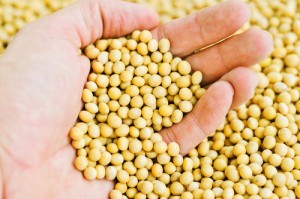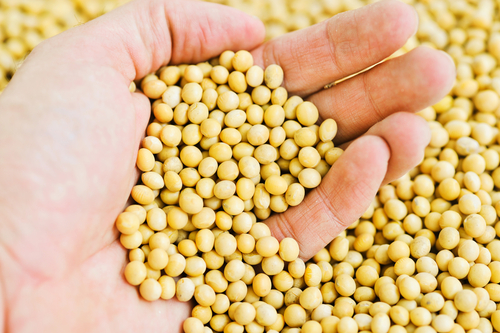 In a recent study entitled “The Effects of Soy Supplementation on Gene Expression in Breast Cancer: A Randomized Placebo-Controlled Study” published in the Journal of the National Cancer Institute (JNCI), researchers concluded that consuming soy protein supplements could lead to adverse genetic changes for women with breast cancer.
In a recent study entitled “The Effects of Soy Supplementation on Gene Expression in Breast Cancer: A Randomized Placebo-Controlled Study” published in the Journal of the National Cancer Institute (JNCI), researchers concluded that consuming soy protein supplements could lead to adverse genetic changes for women with breast cancer.
The team analyzed 140 women diagnosed with invasive breast cancer that either took soy protein powder or a placebo control between 7 and 30 days before undergoing cancer surgery.
Plasma isoflavones (genistein and daidzein) were determined, and tumor tissue before and after surgery was compared to observe changes in the expression of genes involved in cell growth.
The results indicated that among the soy group, plasma isoflavones rose and 21 genes (out of 202 analyzed) had altered expression.
A high-genistein signature consisting of 126 differentially expressed genes was identified from microarray analysis of tumors and characterized by overexpression of cell cycle transcripts, including those promoting cell proliferation.
“We do not know what the consequences of taking soy for longer periods or taking higher amounts of soy, would have on the biology of a breast tumor,” Dr. Jackie Bromberg, a breast cancer oncologist at Memorial Sloan Kettering Cancer Center in New York and lead author of the study said in a Live Science interview.
This study analyzed mainly postmenopausal women with an average of 56 years of age. Previous research had already hypothesized a link between soy supplementation and breast cancer, although results remained unclear.
Because researchers did not observe any changes in the tumor’s growth rate as a consequence of soy intake, they cannot directly suggest if taking soy is good or bad for women.
[adrotate group=”3″]
“I think the study provided preliminary evidence that soy supplementation can affect gene expression in breast tumors. However, evidence is still lacking on any outcomes of this change in gene regulation when it comes to the patients’ survival, recurrence of breast cancer, or response to therapies such as chemotherapy ” Dr. Michael S. Cowher, an associate staff and quality improvement officer at Cleveland Clinic’s Breast Services, who was not involved with the study, also stated in the same interview.
Even though the findings in this study raise concerns that in a subset of women soy could adversely affect gene expression in breast cancer, the discussion is still open as to whether or not soy supplementation is beneficial or harmful to patients with breast cancer.
“I generally advise both patients with and those at higher risk for breast cancer to avoid excessive soy intake, but remind them that it is possible that future research will find that for some patients soy supplementation may be beneficial, while harmful to others,” Dr. Cowher concluded.

